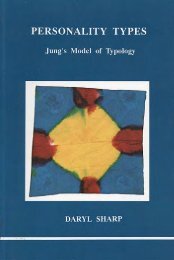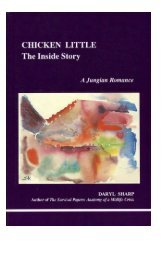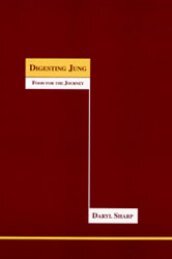JUNG at HEART, No. 43 - Inner City Books
JUNG at HEART, No. 43 - Inner City Books
JUNG at HEART, No. 43 - Inner City Books
Create successful ePaper yourself
Turn your PDF publications into a flip-book with our unique Google optimized e-Paper software.
Edinger on von Franz on Jung<br />
C.G. <strong>JUNG</strong>: His Myth in Our Time by Marie-Louise von Franz (title 77, 368pp, $30),<br />
reviewed by Edward F. Edinger in Psychological Perspectives, Spring 1976<br />
The magnitude of Jung’s life and work has<br />
not yet dawned on the world. Even some<br />
of his followers are reluctant to acknowledge<br />
his true dimensions. He is the carrier<br />
of a consciousness so magisterial th<strong>at</strong> it<br />
has no peer. Quite understandably did he<br />
complain in a l<strong>at</strong>e unpublished letter th<strong>at</strong>,<br />
“I am practically alone. There are a few<br />
who understand this and th<strong>at</strong>, but almost<br />
nobody sees the whole.” There can be no<br />
question of a critical evalu<strong>at</strong>ion of Jung’s<br />
work <strong>at</strong> present for the simple reason th<strong>at</strong><br />
no one is competent to judge it.<br />
Let someone appear who has gone deeper<br />
than Jung and has seen the psyche more<br />
comprehensively than he—to th<strong>at</strong> person’s<br />
judgments I shall listen with respect. But<br />
<strong>JUNG</strong> <strong>at</strong> <strong>HEART</strong>, <strong>No</strong>. <strong>43</strong>, Spring/Summer 2006<br />
logical genetics he gener<strong>at</strong>es a family<br />
tree—a multiple series of fili<strong>at</strong>ions—which<br />
reproduces his essence for future gener<strong>at</strong>ions.<br />
Dr. von Franz is an example of this<br />
phenomenon. She is a true spiritual daughter<br />
of Jung, a carrier of the pure Jungian<br />
elixir, the next best thing to Jung himself.<br />
And so it is with this book. We are<br />
given a distilled essence of Jung’s life and<br />
work which is rich, complex and profound<br />
as only Jung can be. There are precious<br />
gems of new inform<strong>at</strong>ion sc<strong>at</strong>tered<br />
throughout the book. For instance we are<br />
told th<strong>at</strong> Jung once said, “Everything I<br />
have written has a double bottom.” Again,<br />
when he was once asked how he could live<br />
with the knowledge he had recorded in<br />
“Von Franz gives us a distilled essence of Jung’s life and work<br />
which is rich, complex and profound as only Jung can be.”<br />
so far such a one is not to be found. Jung<br />
thus becomes a kind of touchstone. Our<br />
reactions to him reveal the n<strong>at</strong>ure of ourselves.<br />
In my view, he embodies the highest<br />
level of consciousness yet achieved by<br />
humanity. Valid books on Jung <strong>at</strong> present,<br />
therefore, cannot be evalu<strong>at</strong>ive. They must<br />
explic<strong>at</strong>e, exemplify and medi<strong>at</strong>e the canon<br />
Jung has left us, and this is the n<strong>at</strong>ure of<br />
Dr. von Franz’s book.<br />
Like the Philosophers’ Stone, the highly<br />
individu<strong>at</strong>ed personality has the power<br />
to replic<strong>at</strong>e himself. By a kind of psycho-<br />
Answer to Job, he replied, “I live in my<br />
deepest hell, and from there I cannot fall<br />
any further.”<br />
Dr. von Franz organizes her present<strong>at</strong>ion<br />
around the major guiding images th<strong>at</strong><br />
underlay Jung’s opus. A chapter is devoted<br />
to each of the following: The Underground<br />
God, The Storm Lantern, The Physician,<br />
Mirror-Symmetry and the Polarity<br />
of the Psyche, The Journey to the Beyond,<br />
The Anthropos, The Mandala, Coincidentia<br />
Oppositorum, Morning Knowledge and<br />
Evening Knowledge, Mercurius, The Philosophers’<br />
Stone, Breakthrough to the<br />
Unus Mundus, Individual and Society.<br />
Wh<strong>at</strong> most interests me about this book<br />
are the implic<strong>at</strong>ions of its subtitle. Wh<strong>at</strong> is<br />
Jung’s myth? Wh<strong>at</strong> is its relevance for our<br />
time? Dr. von Franz approaches these questions<br />
obliquely, chiefly through descriptions<br />
of Jung’s ideas. Where specific answers<br />
are offered, it is with quot<strong>at</strong>ions<br />
from Jung. The issue is faced most squarely<br />
in the chapter entitled, “Coincidentia<br />
Oppositorum,” in which Answer to Job is<br />
discussed. The high point of this chapter is<br />
a quot<strong>at</strong>ion from Jung’s autobiography,<br />
Memories, Dreams, Reflections:<br />
“The unavoidable internal contradic-<br />
tions in the image of a Cre<strong>at</strong>or-god can be<br />
reconciled in the unity and wholeness of<br />
the Self as the coniunctio oppositorum of<br />
the alchemists or as a unio mystica. In the<br />
experience of the Self it is no longer the<br />
opposites ‘God’ and ‘man’ th<strong>at</strong> are reconciled,<br />
as it was before, but r<strong>at</strong>her the opposites<br />
within the God-image itself. Th<strong>at</strong> is<br />
the meaning of divine service, of the service<br />
th<strong>at</strong> man can render to God, th<strong>at</strong> light<br />
may emerge from the darkness, th<strong>at</strong> the<br />
Cre<strong>at</strong>or may become conscious of His<br />
cre<strong>at</strong>ion, and man conscious of himself.”<br />
This quot<strong>at</strong>ion should be put beside<br />
another one from Memories:<br />
“As far as we can discern, the sole<br />
purpose of human existence is to kindle a<br />
light in the darkness of mere being. It may<br />
even be assumed th<strong>at</strong> just as the unconscious<br />
affects us, so our increase in consciousness<br />
affects the unconscious.”<br />
These two passages convey the essence<br />
of Jung’s myth for our time. It is elabor<strong>at</strong>ed<br />
more fully in Answer to Job, which von<br />
Franz tells us is the only one of Jung’s<br />
works with which he was completely s<strong>at</strong>isfied.<br />
A new myth can regener<strong>at</strong>e a society,<br />
and Jung’s myth offers Western civiliz<strong>at</strong>ion<br />
a sound container to hold the precious<br />
life-essence of meaning which has<br />
been spilled during the breaking of the<br />
vessels of traditional religion.<br />
In this new myth, man is perceived as a<br />
necessary partner of God. Consciousness,<br />
whose only carrier is the individual, is the<br />
supreme value, goal and meaning of the<br />
universe. It has groped its way blindly out<br />
of the boundless chaos and laboriously<br />
fashioned a vessel to contain it—the individual<br />
self and its sp<strong>at</strong>io-temporal incarn<strong>at</strong>ion,<br />
the human ego.<br />
The ego, in turn, after a long series of<br />
mistakes and presumptions, with tortuous<br />
slowness, backslidings and perversities,<br />
gradually learns its purpose for being—to<br />
be the carrier of cosmogonic consciousness.<br />
The mythless ones who encounter<br />
this new myth and are gripped by its numinosity<br />
will be drafted into its service. ✪<br />
page 5










